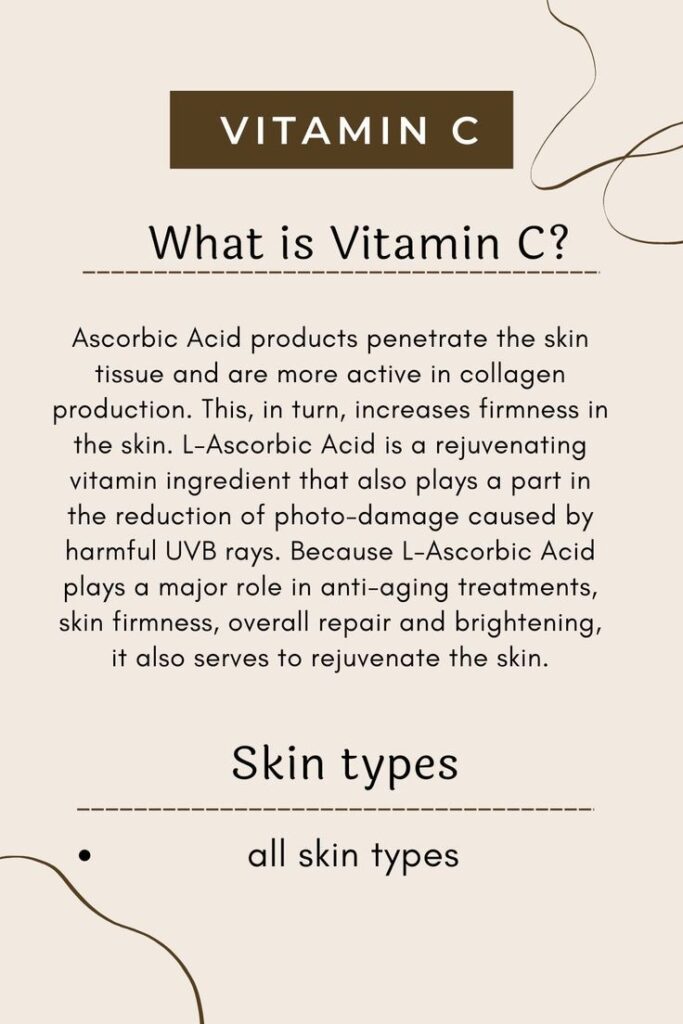
Vitamin C, also known as ascorbic acid, is a vital nutrient essential for maintaining overall health and well-being. This water-soluble vitamin plays a crucial role in boosting the immune system, fighting off infections, and promoting collagen production. Foods rich in vitamin C include citrus fruits, strawberries, bell peppers, broccoli, and leafy greens. Adequate intake of vitamin C helps protect against scurvy, supports iron absorption, and enhances wound healing. Additionally, vitamin C’s antioxidant properties combat free radicals, reducing the risk of chronic diseases like heart disease, cancer, and cognitive decline. The recommended daily intake of vitamin C varies by age and sex, but most adults require around 60-90 milligrams per day. Supplementing with vitamin C can help bridge dietary gaps, but always consult with a healthcare professional before adding supplements to your regimen.
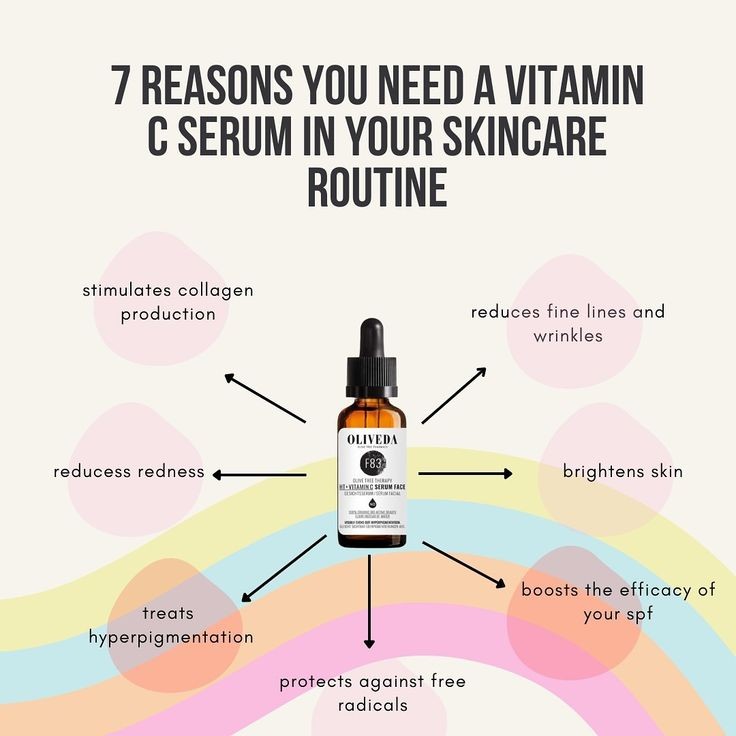
Here’s more information about vitamin C:
Benefits:
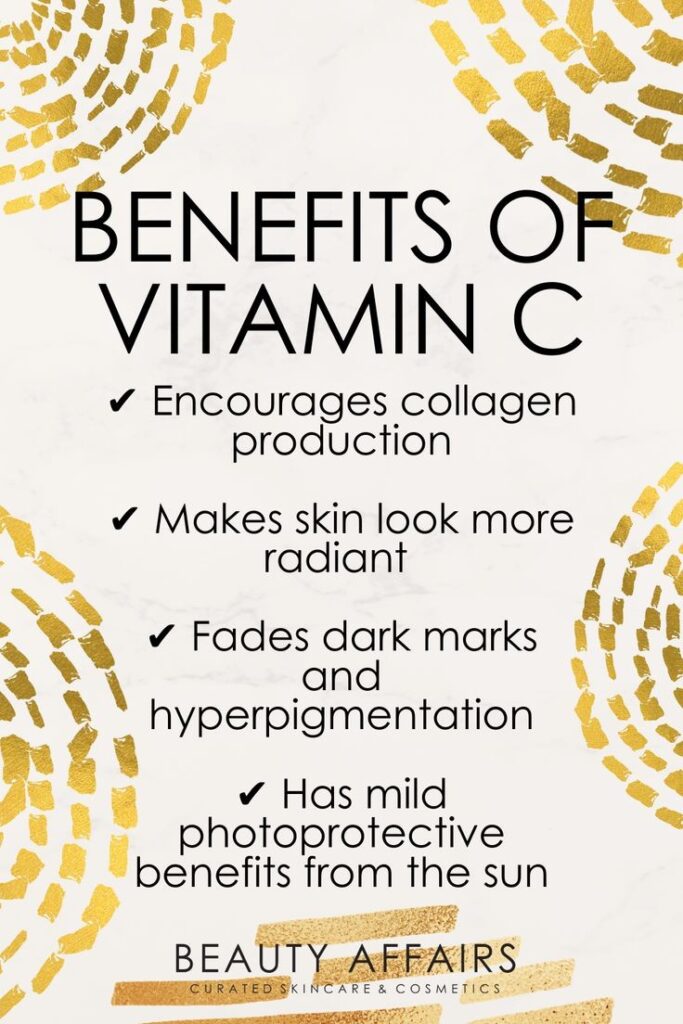
- Immune system support: Vitamin C aids in the production of white blood cells, helping fight infections.
- Antioxidant properties: Neutralizes free radicals, protecting cells from damage.
- Collagen production: Essential for healthy skin, bones, and connective tissue.
- Iron absorption: Enhances absorption of iron from plant-based sources.
- Wound healing: Promotes tissue repair and recovery.
- Cardiovascular health: May help lower blood pressure and reduce risk of heart disease.
- Cognitive function: Supports brain health and potentially reduces dementia risk.
- Anti-inflammatory effects: May alleviate symptoms of conditions like arthritis.
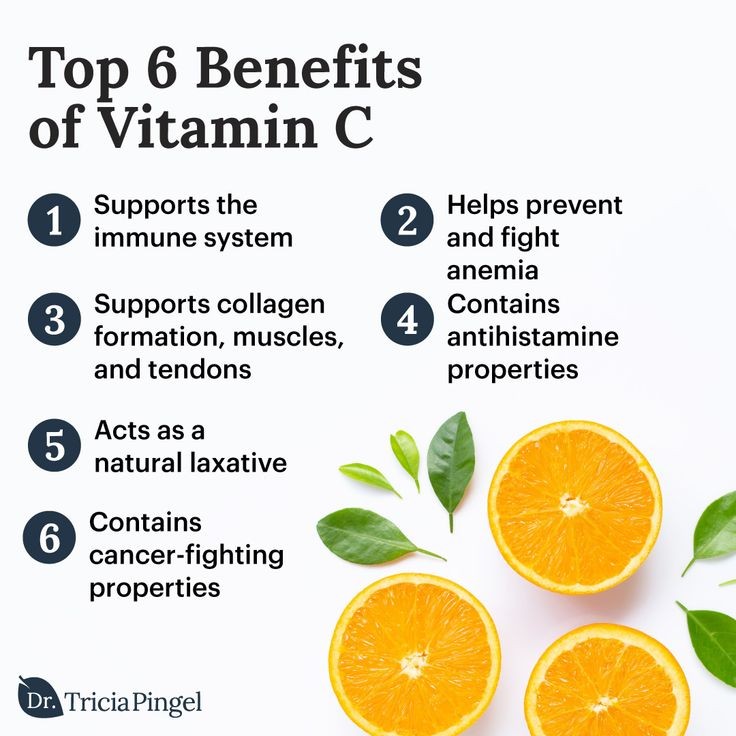
Food Sources:
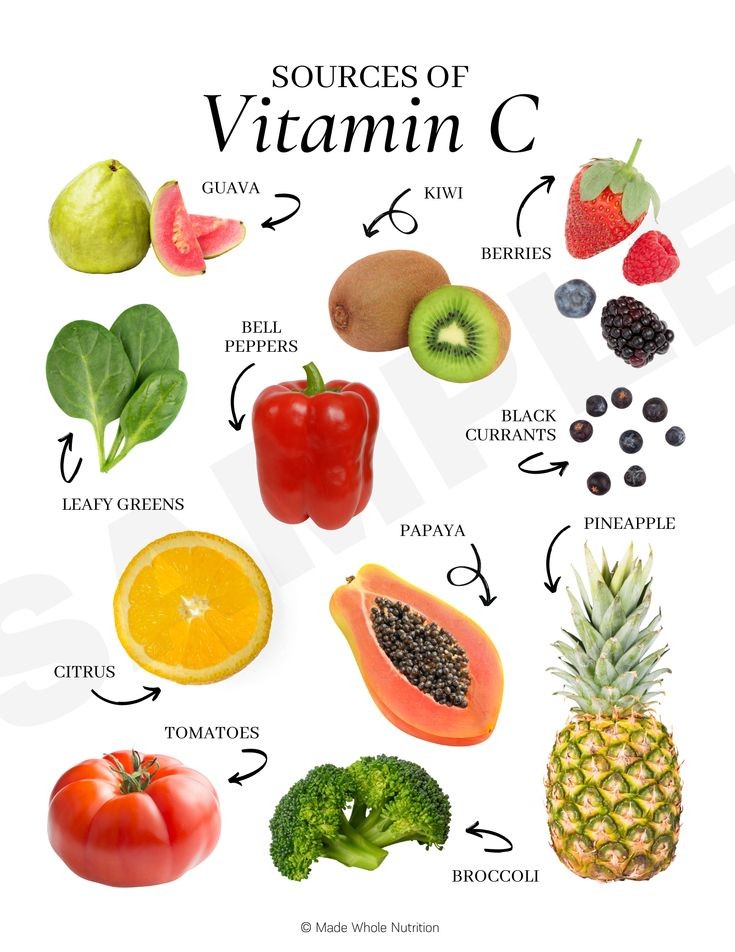
- Citrus fruits (oranges, grapefruits, lemons)
- Berries (strawberries, kiwis, raspberries)
- Bell peppers
- Broccoli
- Leafy greens (spinach, kale, collard greens)
- Tomatoes
- Avocados
- Potatoes
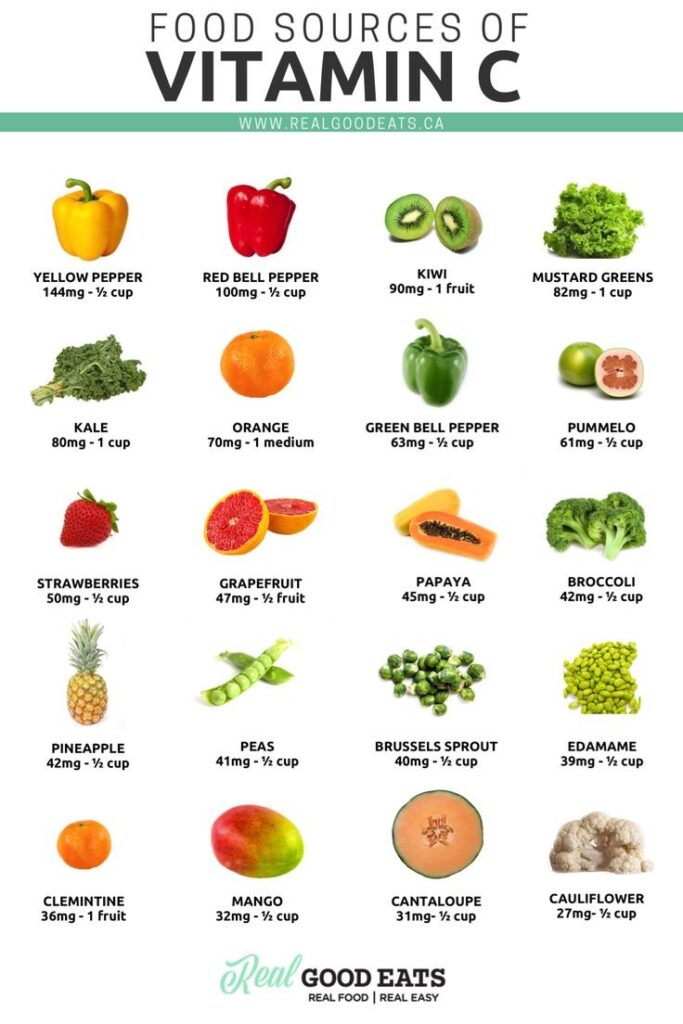
Deficiency Risks:
- Scurvy (rare, but potentially severe)
- Impaired immune function
- Poor wound healing
- Fatigue and weakness
- Dry, brittle hair and skin
Recommended Intake:
- Adult men: 90 mg/day
- Adult women: 75 mg/day
- Pregnant women: 80-85 mg/day
- Breastfeeding women: 120 mg/day
Interesting Facts:
- Vitamin C is water-soluble, so excess amounts are flushed out through urine.
- Cooking and processing can reduce vitamin C content in foods.
- Smoking and stress can increase vitamin C requirements.
https://ods.od.nih.gov/factsheets/VitaminC-HealthProfessional/
Here are more topics related to Vitamin C:
Vitamin C and Skin Concerns:
- Acne: Reduces inflammation, prevents scarring
- Aging: Fades fine lines, wrinkles, and age spots
- Hyperpigmentation: Lightens dark spots, evens tone
- Rosacea: Soothes redness, minimizes pores
- Eczema: Hydrates, calms irritated skin
Vitamin C and Skin Type:
- Sensitive skin: Start with lower concentrations (5-10%)
- Dry skin: Moisturize after Vitamin C application
- Oily skin: Use lightweight, oil-free Vitamin C products
- Combination skin: Balance Vitamin C with hydrating products
Vitamin C and Product Combinations:
- Retinol: Enhances collagen production, anti-aging
- Hyaluronic acid: Hydrates, plumps skin
- Niacinamide: Brightens, improves skin elasticity
- Glycolic acid: Exfoliates, brightens skin
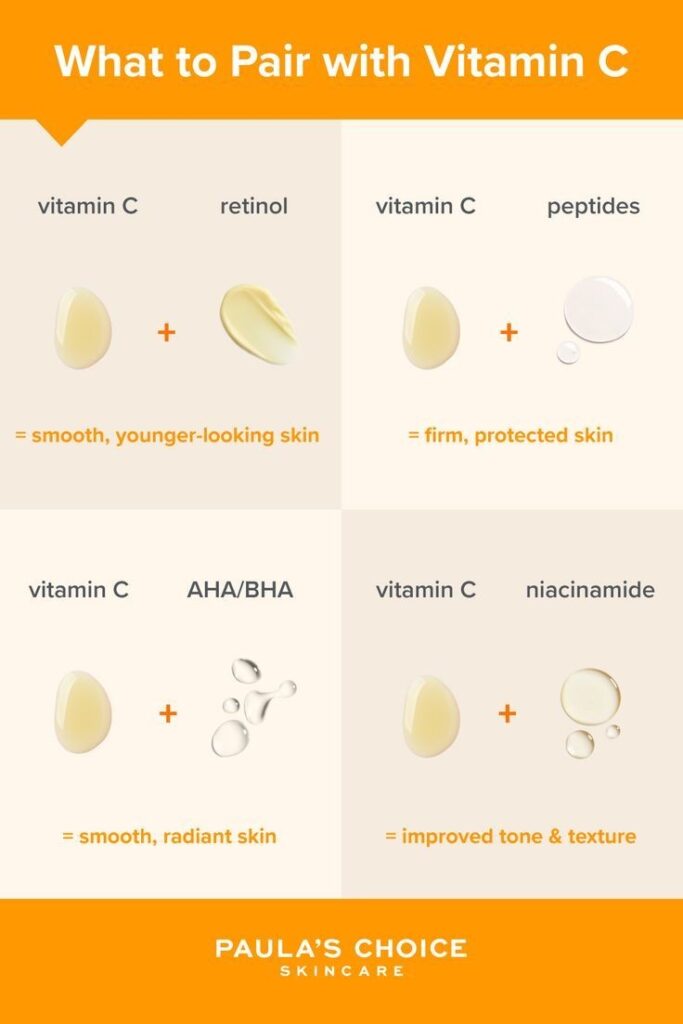
Vitamin C and Lifestyle:
- Diet: Consume Vitamin C-rich foods (citrus, berries)
- Exercise: Boosts collagen production, skin health
- Sleep: Get 7-8 hours for optimal skin regeneration
- Stress management: Reduces oxidative stress
Best Vitamin C Products:
- Serums: Olay Regenerist, Neutrogena Rapid Wrinkle Repair
- Moisturizers: La Roche-Posay, SkinCeuticals
- Face masks: Dr. Jart+, Sunday Riley
- Eye creams: Kiehl’s, Origins
Vitamin C Myths and Facts:
- Myth: Vitamin C is too harsh for sensitive skin.
Fact: Start with lower concentrations. - Myth: Vitamin C should only be used at night.
Fact: Some products are designed for daytime use.
Let’s explore something new.
Did you know?
Vitamin C can help reduce stress and anxiety! Research shows that vitamin C supplements can:
- Lower cortisol levels (stress hormone)
- Improve mood
- Enhance cognitive function
- Support adrenal gland function
Additionally, vitamin C-rich foods like citrus fruits and berries contain other beneficial compounds that support mental well-being.
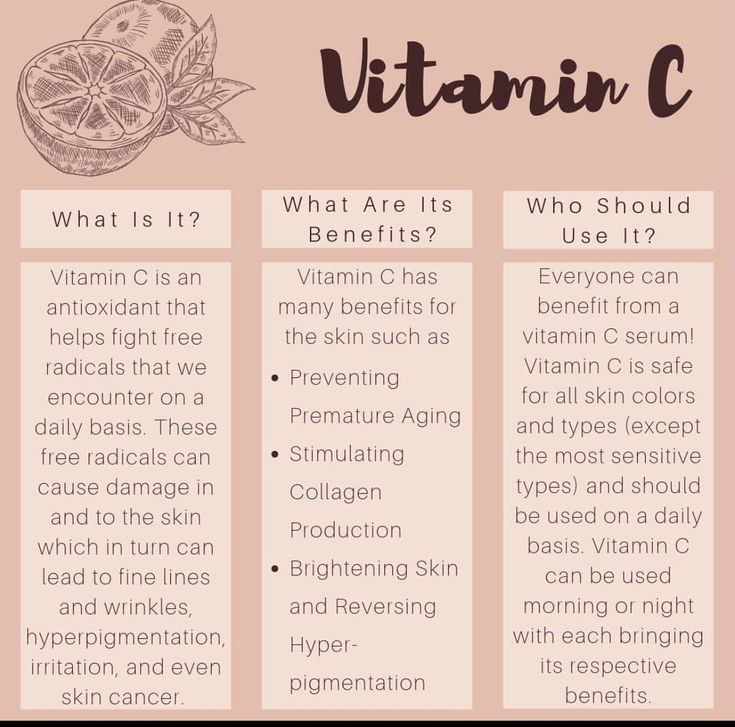
https://khansasaadhassan.com/important-of-retinol-for-your-skin/

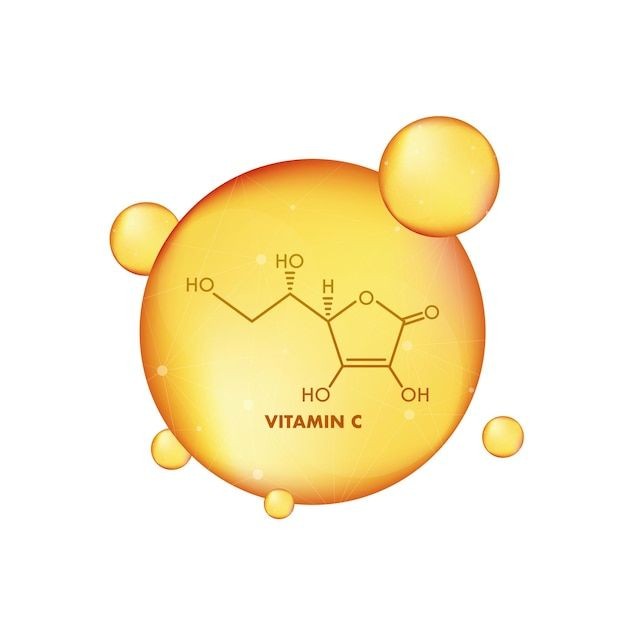
Thanks for posting. I really enjoyed reading it, especially because it addressed my problem. It helped me a lot and I hope it will help others too.
Thank you so much